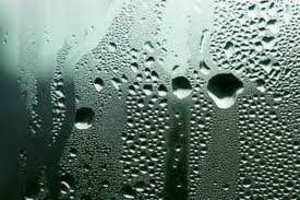Window glass cleaning and care today is more important than ever.
- Consult with the manufacturer’s specific instructions, especially before using potentially abrasive or caustic cleaners or solvents. Generally, when cleaning glass, it’s a good idea to use a vinegar-based glass cleaner or mild dish soap and water with a soft, lint-free cloth or paper products. You may carefully use a squeegee to dry. Petroleum-based cleaners or solvents should not be used as they can streak the glass and weaken the seal between the glass and frame.
- The applied film should only be added with approval from the window or door manufacturer. The addition of aftermarket products may void the original manufacturer’s warranty or alter product performance.
- Clean tracks and weep holes using a dry paintbrush or vacuum brush attachment. The use of oil-based lubricants can damage the weep hole. Weep holes help channel water out of the window or door, so be sure they are free of debris.
- Carefully clean the frame surfaces as directed by the manufacturer. If you live in an area with saltwater or acid rains, it’s a good idea to hose off the exterior of your windows and doors several times a year with water to help protect them from the harsh elements. The use of a razor blade, steel wool, putty knife, or abrasive pad may damage your window.
- Check weatherstripping, hardware, and caulking and replace broken, worn, or damaged parts. Poor performing components can decrease security or energy efficiency.
- Reduce the risk of an insecure environment or loss of energy efficiency by leaving windows and doors closed and locked when not in use for ventilation.
- Choose windows and doors designed and tested to meet stringent air, water, structural, forced entry, and thermal performance standards. Insulating, Low-E, or heat reflective glass requires proper maintenance to ensure the best performance over the life of the product.
- Never use a razor blade, putty knife, steel wool, abrasive pad, or anything that may scratch the glass surface.
- Never use a pressure washer or high-pressure sprayer to wash or rinse windows or doors as this can dislodge seals and gaskets and damage frame components.
- Clean glass with a vinegar-based cleaner or mixture of mild soap or detergent and water. Rinse completely with clear water, then wipe dry with a soft cloth or a squeegee to help avoid water spots. Always test cleaners in an inconspicuous area first.
- Avoid washing glass in direct sunlight to reduce streaking of the glass.
- Avoid abrasive, petroleum-based, or caustic cleaners because they may cause permanent damage to the finish or the glass.
- When painting, staining, or finishing sash or frame components adjacent to glass surfaces the use of masking tape on the glass is recommended to protect it from splatter or overcoat that may require excessive clean-up.
- Clean screens by gently vacuuming with a brush attachment. Or, remove for cleaning and gently vacuum or wash on a flat, clean surface with mild soap and water and a soft brush. Rinse, wipe, or air dry and reinstall.
An article by MI Windows. To find out more about MI Windows, click here.





